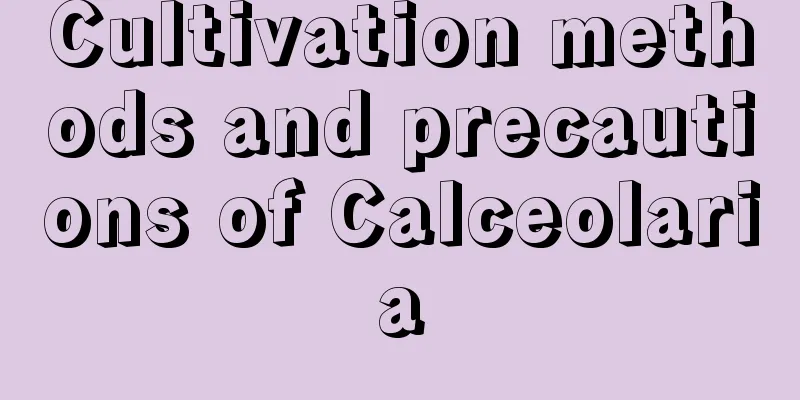What fertilizer is best for winter fertilization?

|
Fertilizing in winter is a technical job and it cannot be done by simply spreading some fertilizer . Each fertilizer has its own characteristics and is suitable for different plants and growth stages. So what kind of fertilizer is best for fertilizing in winter? Let’s take a look below. 1. What kind of fertilizer is best for fertilization in winter? 1. Slow-release fertilizer : Slow-release fertilizer releases nutrients very slowly in a low-temperature environment, and can continuously provide nutrients to plants without causing fertilizer damage. It is suitable for fertilizing dormant flowers and plants in winter. It can be used by shallow burial or sprinkling on the soil surface, but it is recommended to keep it a little away from the root system to prevent root burn. It is also a good choice to mix it into the soil when repotting. 2. Organic fertilizer : Organic fertilizer has a mild and long-lasting fertilizer effect and contains a large number of beneficial bacteria. It can activate the soil and improve the plant's resistance to cold. Suitable for application to flowers and plants in late autumn and winter, especially in areas with lower temperatures. Organic fertilizers can revitalize the soil, make it loose and breathable, and lay the foundation for plant growth and flowering next year. 3. Sheep manure fertilizer: Sheep manure fertilizer is rich in nutrients such as nitrogen, phosphorus, potassium, etc. It has a long-lasting and stable fertilizer effect and is suitable for winter fertilization. It can improve soil structure, enhance air permeability and improve the plant's resistance to cold. Fermented sheep manure fertilizer is odorless and tasteless and is suitable for use on various plants. 4. Phosphorus and potassium fertilizers: Phosphorus and potassium fertilizers can help plants enhance their cold resistance and promote branch growth and flower bud differentiation. Using phosphorus and potassium fertilizers, such as potassium dihydrogen phosphate, in winter can make the stems of plants thicker and greatly improve their frost resistance. When using, the dosage should be less than in spring to avoid burning the seedlings. 5. Ammonium urea: In winter when the temperature is low, ammonium urea is not easy to volatilize and decompose, which is beneficial to improve the utilization rate of fertilizer. Ammonium carbonate is an ammonium nitrogen fertilizer. After being applied into the soil, it can be directly absorbed and utilized by crops. It has a fast fertilizer effect and is suitable for topdressing in wheat fields in winter. 2. The importance of fertilizing flowers in winter 1. Supplement nutrients and reserve energy Although many plants enter a dormant state in winter, root activity does not completely stop. Appropriate fertilization can reserve energy for the plants and support rapid growth in spring. Nutrient supplementation is particularly important for evergreen plants or varieties that still bloom in winter (such as camellia and Christmas cactus). 2. Improve cold resistance Adequate nutrients can enhance the plant's resistance to cold, help it better cope with low temperature environments, and reduce the risk of frost damage. 3. Prevent yellow leaves from falling off In winter, the temperature drops and the light is insufficient, so plants are prone to yellowing or falling leaves. Proper fertilization can improve soil conditions and alleviate plant nutrient deficiencies. 4. Promote root health The root system is the key part of the plant overwintering. Proper maintenance can lay a good foundation for growth in the next year. Improving the soil environment through fertilization helps the root system maintain normal absorption function. 3. Difficulties of fertilizing in winter 1. Fertilizers in the soil are released slowly Low temperatures in winter slow down the activity of soil microorganisms, and the fast-acting ingredients in fertilizers are difficult to be quickly absorbed by plants, which can easily cause waste or fertilizer damage. 2. Plant absorption capacity weakened In a low temperature environment, the metabolic activity of plants slows down and their ability to absorb nutrients is greatly reduced. Improper use of fertilizers may cause stress to the root system. 3. Increased risk of fertilizer damage High concentrations of fertilizers can easily cause damage to plants in winter, especially some chemical fertilizers, which can burn the roots due to being released too quickly, causing plant growth to stagnate or even die. That’s it |
<<: Open-air cultivation technology of Qilin watermelon
>>: How to care for and water June Snow?
Recommend
How to propagate horse chestnut
1. Planting 1. Pick the seeds and store them in m...
How long is the growth cycle of ginger?
Introduction to Ginger Growth Ginger grows underg...
How to solve the problem that the soil in the flowerpot is too wet and sticky (what to do if the soil in the pot is always wet)
How to solve the problem of stickiness in potted ...
When is the best time to sow petunias?
How to sow seeds Temperature conditions The suita...
When to repot gardenia
1. Time In fact, to be precise, it is February in...
How to grow pitcher plants
1. Breeding methods 1. Temperature: Nepenthes lik...
When is the best month to transplant grape seedlings?
1. Which month is best for transplanting? The tim...
Can osmanthus be repotted in summer? Spring and autumn are more suitable for repotting
Can the osmanthus be repotted in summer? Osmanthu...
Which city's city flower is osmanthus? What is its flowering season?
1. Which city's city flower is this? Osmanthu...
The reproduction method of black rice
Propagation and development by cuttings The cutti...
Is it better to grow water lilies in water or soil?
Is it better to grow water lilies in water or soi...
Wolfberry Growth Conditions and Characteristics
Wolfberry Growth Conditions Wolfberry is generall...
What is the difference between the large-leaved umbrella and the Schefflera arborvitae
Differences in plant appearance: This is also the...
High-yield cultivation technology of bitter melon
Bitter melon, as a common vegetable , is rich in ...
Is Brazilian wood poisonous?
Is the Brazilian wood poisonous? Not poisonous. T...









